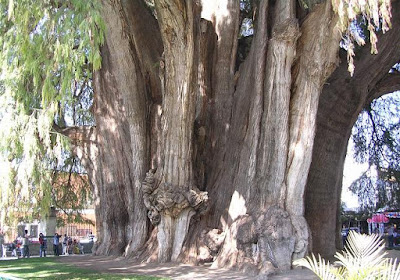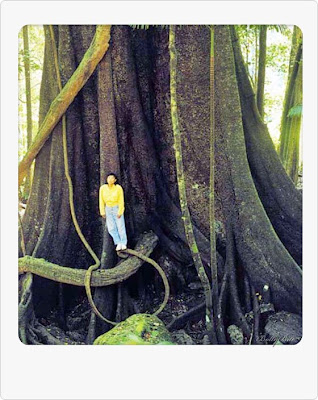Giant Sequoias (Sequoiadendron giganteum), which only grow in Sierra Nevada, California, are the world’s biggest trees (in terms of volume). The biggest is General Sherman in the Sequoia National Park - one behemoth of a tree at 275 feet (83.8 m), over 52,500 cubic feet of volume (1,486 m³), and over 6000 tons in weight.
General Sherman is approximately 2,200 years old - and each year, the tree adds enough wood to make a regular 60-foot tall tree. It’s no wonder that naturalist John Muir said “The Big Tree is Nature’s forest masterpiece, and so far as I know, the greatest of living things.”
There is another sequoia species (not to be confused with Giant Sequoia) that is quite remarkable: the Coast Redwood (Sequoia sempervirens), the tallest trees in the world.
The reigning champion is a tree called Hyperion in the Redwood National Park, identified by researcher Chris Atkins and amateur naturalist Michael Taylor in 2006. Measuring over 379 feet (155.6 115 m) tall, Hyperion beat out the previous record holder Stratosphere Giant in the Humboldt Redwoods State Park (at 370 feet / 112.8 m).
The amazing baobab (Adansonia) or monkey bread tree can grow up to nearly 100 feet (30 m) tall and 35 feet (11 m) wide. Their defining characteristic: their swollen trunk are actually water storage - the baobab tree can store as much as 31,700 gallon (120,000 l) of water to endure harsh drought conditions.
Baobab trees are native to Madagascar (it’s the country’s national tree!), mainland Africa, and Australia. A cluster of “the grandest of all” baobab trees (Adansonia grandidieri) can be found in the Baobab Avenue, near Morondava, in Madagascar.

In Ifaty, southwestern Madagascar, other baobabs take the form of bottles, skulls, and even teapots:

The baobab trees in Africa are amazing as well:
Banyan Tree: Sri Maha Bodhi Tree

The Banyan tree is named after “banians” or Hindu traders who carry out their business under the tree. Even if you have never heard of a Banyan tree (it was the tree used by Robinson Crusoe for his treehouse), you’d still recognize it. The shape of the giant tree is unmistakable: it has a majestic canopy with aerial roots running from the branches to the ground.


















No comments:
Post a Comment